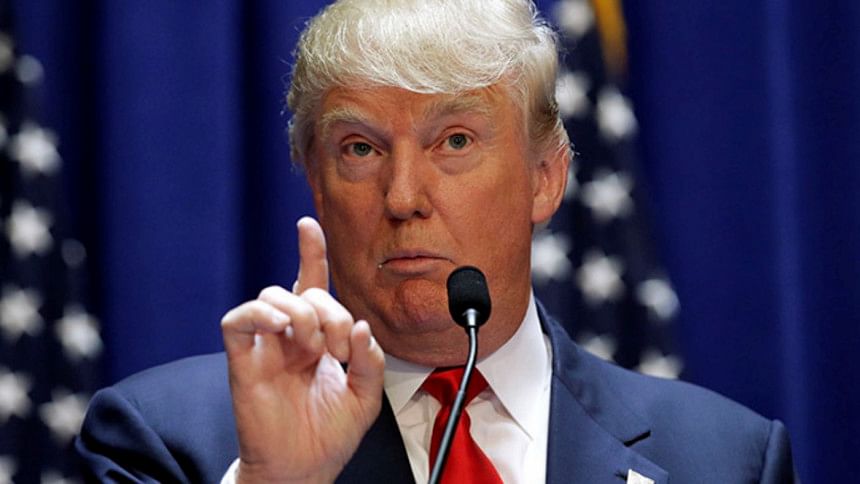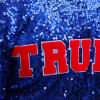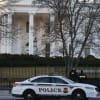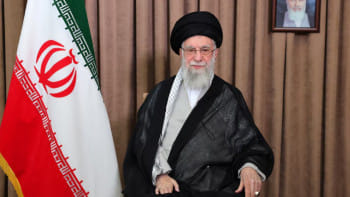Trump’s remark endangers ‘US security’

Donald Trump's anti-Muslim rhetoric undermines US national security by boosting the Islamic State (IS) group, the Pentagon has warned.
The leading Republican presidential candidate has said Muslims should be banned from entering the US, in the wake of the deadly California attacks.
But Pentagon press secretary Peter Cook said such talk "bolsters Isil's narrative", referring to IS.
There has been a global outcry since Trump made his remarks.
US Secretary of State John Kerry joined the onslaught of condemnation on Tuesday afternoon when he said they were "not constructive" in the fight against IS.
The IS militants are the target of a US-led bombing campaign in Syria and Iraq.
Trump announced his plan days after an attack in California raised US fears about homegrown terrorism.
A Muslim couple, believed to have been radicalised, opened fire and killed 14 people at a health centre in San Bernardino.
One of the two perpetrators, Tashfeen Malik, reportedly pledged allegiance to Islamic State on the day of the tragedy.
But responding to Trump's remarks, the US Pentagon said a border closed to Muslims would harm American efforts to counter extremist ideology.
Without mentioning Trump by name, Cook said: "Anything that bolsters Isil's narrative and pits the United States against the Muslim faith is certainly not only contrary to our values but contrary to our national security."
The Pentagon's view echoed a tweet from Hillary Clinton that said Trump's proposed ban is "not only counter to our values - it plays right into the hands of terrorists".
Declaring war on Islam or demonizing Muslim Americans is not only counter to our values—it plays right into the hands of terrorists.
— Hillary Clinton (@HillaryClinton) December 8, 2015
The outcry was swift as soon as Trump said in a statement on Monday night that Muslims nursed a "hatred" towards America and should be banned "until our country's representatives can figure out what is going on".
The property billionaire and reality TV star later said it would not apply to people living in the US.
He defended the idea on Tuesday, comparing it to policies implemented by President Franklin Roosevelt during World War Two against Japanese, German and Italian people in the US.
But Muslim leaders, the UN and foreign leaders have criticised the call as dangerous and divisive, while the White House said Trump should be disqualified from the race.
Attempting to explain his comments, Trump said parts of London were "so radicalised the police are afraid for their lives".
London Mayor Boris Johnson said that was "ridiculous" and added: "The only reason I wouldn't go to some parts of New York is the real risk of meeting Donald Trump."
Republican leaders were strong in their condemnation. House Speaker Paul Ryan said: "What was proposed yesterday is not what this party stands for. And more importantly, it's not what this country stands for."
Most of Trump's rival Republican candidates were equally forthright.
But Ted Cruz praised the frontrunner "for standing up and focusing America's attention on the need to secure our borders", although he said he disagreed with the policy.
It is not the first time Trump has come under fire for anti-Muslim remarks.
After the terror attacks in Paris, he suggested they register on a database and he said the US should refuse all Syrian refugees.

 For all latest news, follow The Daily Star's Google News channel.
For all latest news, follow The Daily Star's Google News channel. 








Comments